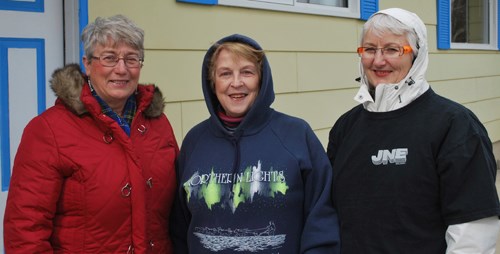Huntington Disease (HD) is a hereditary genetic disorder that attacks a person's brain. The Huntington Society of Canada states that approximately 10,000 Canadians have HD, while about 1 in 1,000 are affected. This includes the family and friends of those living with HD.
"It's devastating for a family not knowing if your children will have it and for insurance companies to say they won't give life insurance because of it." Barbara Dennis stated. Since the disease can be passed through the family there are insurance companies who refuse life insurance to those that apply if a family member is a carrier.
Symptoms of HD are focused on the brain, but affect all aspects of a person's life. People will go through emotional changes, mental loss, and will become physically weak. It is a difficult disease for the individual and for those who are around them to live with.
Currently no treatments are available to slow or stop the disease, which is why research is so important. Strategies to prevent and lessen the impact of Huntington's are being developed. Ultimately the goal for Huntington Society of Canada is to develop "treatments that reverse, slow or prevent the progression of Huntington Disease," as outlined on their website.
Through basic and clinical research combined with expertise around the world they hope to make a difference in people's lives not just in Canada, but globally. "The research for Huntington's will help with other neurological disorders as well. If they find that a drug does not work for HD it might be good for another, such as dementia." Dennis explained.
Developed in 1973 the Huntington Society of Canada is made up of various individuals who want to make a difference. "It runs solely off of corporate sponsors and volunteers, there is no government funding behind them." Joanne Corkish stated.
Originally participating in Saskatoon's Walk for a Cure they decided to hold their own last year and to continue it. It wasn't about the amount of money the Saskatoon organizers had told them, but about doing what you can and bringing awareness to it. Agreeing with this and deciding that the money for travelling to and lodgings in Saskatoon was better put to donations for the society they have began an annual Walk for the Cure.
Bringing awareness is exactly what this small but dedicated group of women from Wawota hope to do. Three women were out walking that day: Joanne Corkish and Barbara Dennis, sisters, as well as their good friend Isabel Robertson. There were others that raised pledges; however, due to scheduling conflicts they were unable to walk on April 26. They held the Second Annual Wawota's Walk for a Cure: Huntington Disease, raising money for the National Society. Through much hard work they gained pledges from people around the community raising $1,654.60 for the walk.
Through sales of amaryllis flowers they are also able to donate to the National Society. Dennis started selling them approximately 30 years ago. Corkish and Dennis now sell them out of their houses, cars, and at a couple of flea markets when they can. Through these means they have donated much to the Huntington Society of Canada and they will continue to do so.



